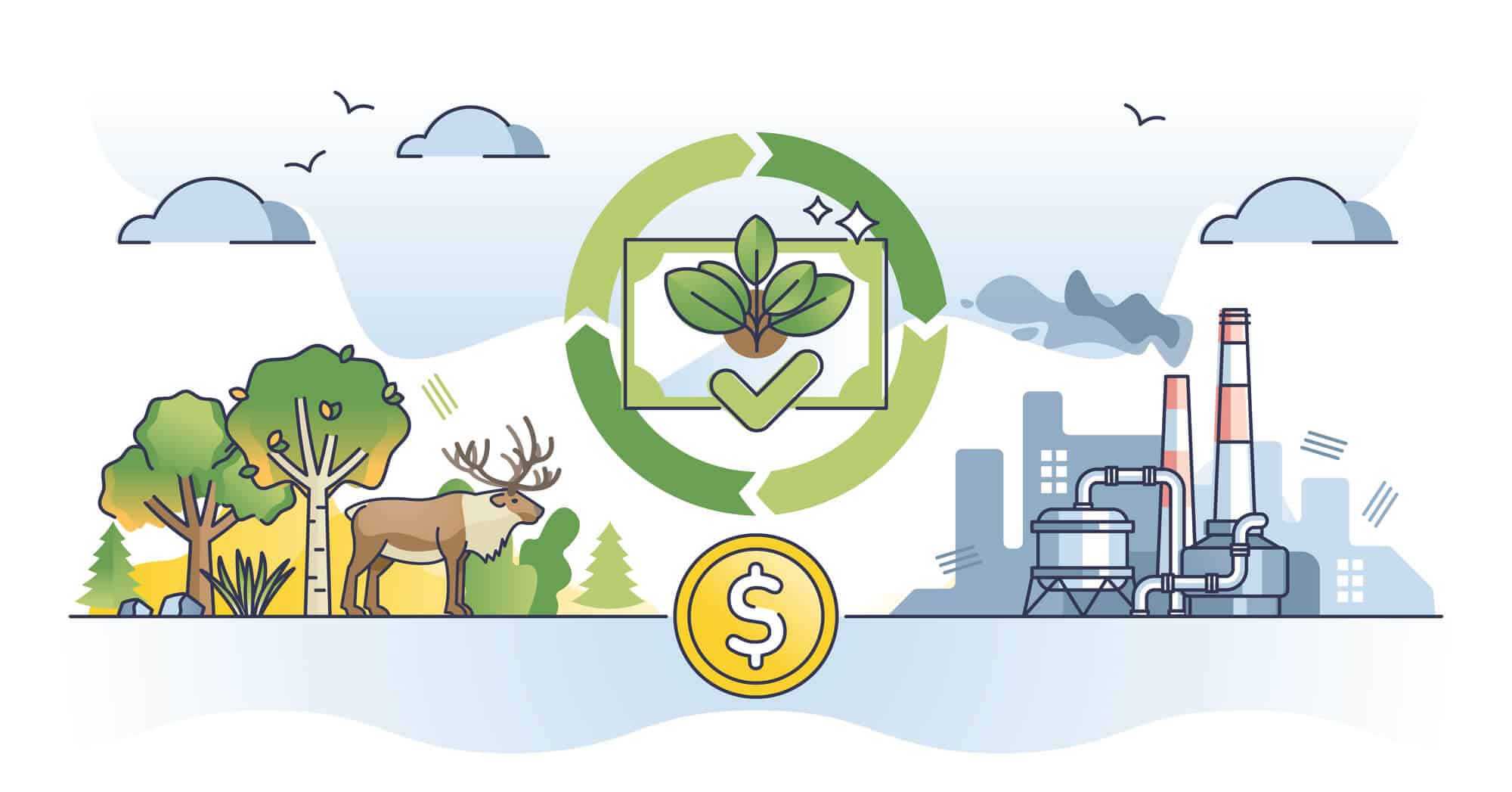One of the problems is that offsetting carbon to the Rav fails to offset emissions empirically, and its effectiveness is questionable. In addition, when calculating emissions, emissions caused by ancillary activities are sometimes ignored

The climate changes that are well felt in the reality of our lives in recent years, stimulate the urgent need to find new ways to reduce the negative effects on the environment. Carbon offsetting has recently emerged as a popular solution, allowing industrial companies to continue their current behavior that pollutes the environment, while compensating for it with other activities that reduce greenhouse gas (GHG) emissions.
An article published by Dr. Dan Baraz, from the philosophy department At Bar-Ilan University, relevant questions regarding carbon offsets are being examined: Are carbon emissions and offsets equivalent to no emissions? Is the empirical result the only consideration in this equation?
The argument in favor of carbon offsets is based on two assumptions: the empirical premise holds that when emissions are offset, the result is equivalent to no emissions. The normative premise states that morally, the net result is the only consideration. This is how we arrive at the idea of "moral equality", that is: emission + offset are morally equivalent to non-emission. However, this concept requires further discussion.
Carbon offsetting is carried out by two main methods - the first is removing carbon from the atmosphere through planting trees, afforestation, capturing carbon from the atmosphere and storing it in reservoirs, and the second is preventing carbon emissions, mainly through renewable energy projects.
One of the problems is that offsetting carbon to the Rav fails to offset emissions empirically, and its effectiveness is questionable. In addition, in the calculation of emissions, emissions caused by ancillary activities are sometimes ignored, such as in the case of flying (construction and maintenance of the aircraft, expansion and maintenance of airports), which are not fully offset.
Additional challenges regarding carbon offsets are situations where the offset does not produce a significant difference in emissions, and situations where the offset efforts simply move the emissions from one place to another.
In addition, generally, the reduction under offset programs occurs at a later date than the emission. The time gaps between the emissions and the offset lead to the presence of more greenhouse gases in the atmosphere, and accelerate climate change. This acceleration may limit the time left for adaptation and intensify climate risks.
While some believe that the net result is the only consideration, there are other opinions as well. Not emitting in the first place has several advantages, including avoiding direct and indirect emissions, eliminating the need for offsets, and reducing the rate of climate change.
The consequentialist approach holds that the consequences of our actions determine their moral value. In the context of carbon offsetting, consequentialism states that if two courses of action lead to the same consequences, they are morally equivalent.
On the subject of climate, the consequentialist approach claims that the cumulative effect of the carbon emissions of many people can cause serious damage, and therefore the focus should be on reducing the overall level of greenhouse gases, and not on the carbon emissions of each and every one individually. Therefore, climate consequentialism does not support the idea of carbon offsets, which implies a link between a factor and its specific emissions.
On the other hand, according to a non-consequential point of view, if the goal is to expand the good and make the world a better place, it would be more effective to invest in funding tuberculosis treatments for citizens of poor countries rather than offset refugees.
Dr. Baraz's article challenges the concept of moral equality between carbon emissions and offsets, both on an empirical and a moral basis. According to Dr. Brass's approach, significant efforts must be made to reduce carbon emissions, without relying only on offsets. The goal should be to adjust the existing norms and prioritize reducing emissions, instead of basing the solution only on carbon offsets.
For more on the subject, listen to Dr. Dan Baraz's podcast - Is carbon offsetting ethical?
More of the topic in Hayadan:
- New insights about the HIV virus - 237 new human proteins that the virus uses to reproduce have been discovered
- A wild ride in a wormhole
- The arrow of time and the Archimedes point are new directions for the physics of time
- Kant's imperative versus the benefit of cloning embryos
- The University of Haifa will award an honorary doctorate to Prof. Aharon Chakhanover
